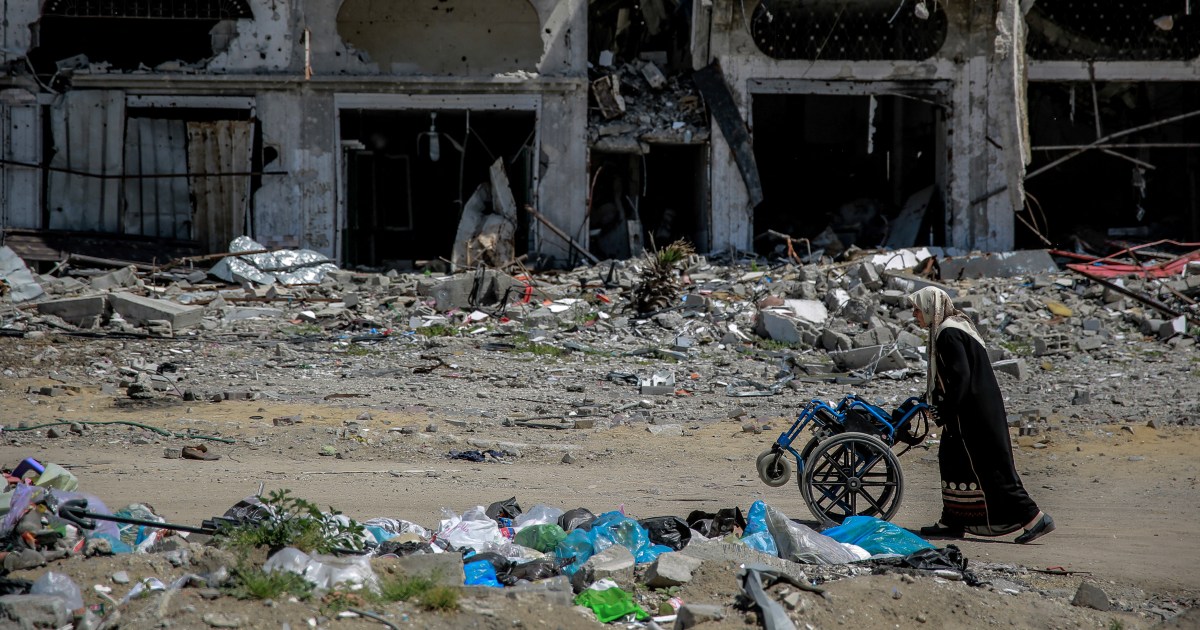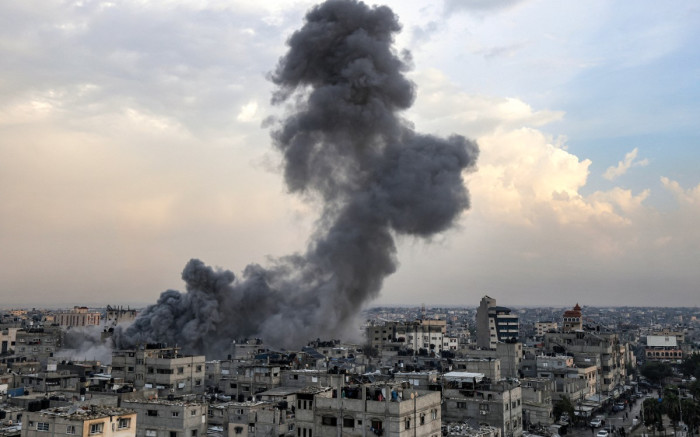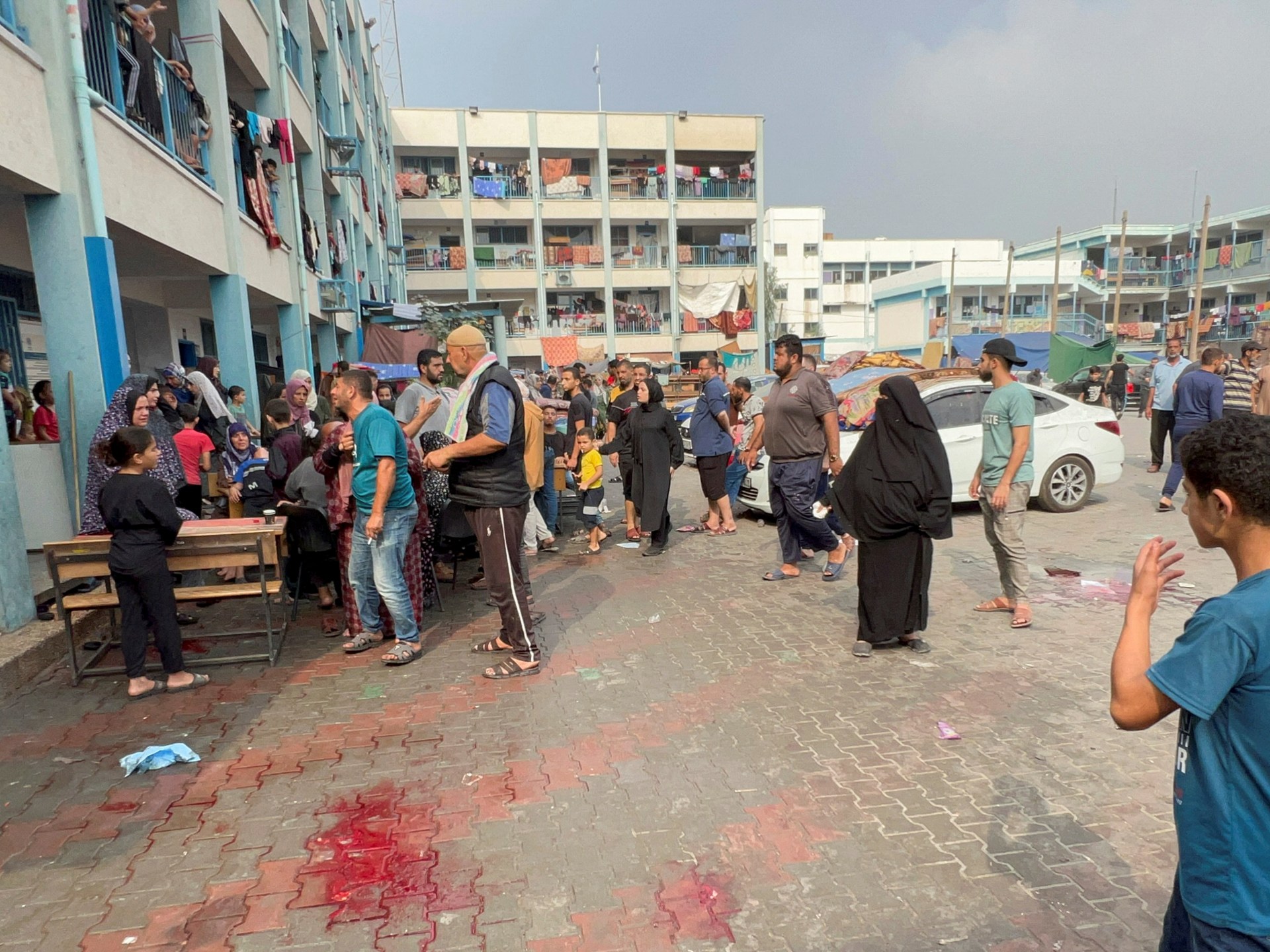
Benjamin Netanyahu’s hold on his position as Prime Minister of Israel appears to be weakening.
Many Israelis blame him and his cabinet for the October 7 security failures, and he has come under heavy criticism for his handling of the Gaza war. Added to this is the fact that he has long been preoccupied with allegations of corruption and criticism of plans to change the justice system.
Several polls show he would be forced to resign if elections were held now.
Now, as Israeli troops push deeper into the southern Gaza Strip, Netanyahu may face a decision that could have far-reaching political implications for his career: whether to send Israeli troops into the 500 km-long Gaza Strip. Tunnel network under Gaza.
“Every tunnel poses a significant threat”
If Israelis were to advance into the tunnel network in Gaza, it would usher in a new phase in the war and significantly level the playing field between the opponents, according to Philip Ingram, MBE, a former British military intelligence officer.
Above ground, Israel has carried out a relentless aerial bombardment and ground invasion of the 365-square-kilometer (141-square-mile) enclave, using its weapons superiority.
In the underground, Hamas could rely on one sophisticated tunnel network This would concentrate the Israeli soldiers on foot into a single group.
The challenges for the Israelis would be “enormous” because of a lack of sufficient information about where the tunnels are, how far they extend and what potential booby traps Hamas has laid in preparation, Ingram said.
From a military perspective, the Israelis wanted to “avoid having to actually fight in the tunnel,” he added.
Given Hamas’s expertise in setting booby traps and ambushes, “any tunnel poses a significant threat” to Israeli forces, believes Elijah Magnier, a military analyst who has covered the Middle East for more than 30 years.
The “Palestinian resistance appears to have a strategic advantage” when it comes to this Tunnel war he said, citing the high number of Israeli soldiers who die or are injured while searching for entrances to the tunnel network.
The Israeli military boasts the Weasels (Samur), a specialized tunnel warfare unit in its ranks, Ingram said, explaining that the special forces will have “all the equipment” and trained dogs to help navigate the tunnels.
But no matter how much they’ve practiced, he says, the reality of what’s down there remains largely unknown, making it very risky.
Hamas’ preparations and its intimate knowledge of the extensive tunnel network would also result in the fighting shifting from a “360-degree conflict” above ground to a “3D” conflict for Israeli troops, who could be subject to attack from any angle, he said.
Regardless, experts believe a possible conflict in the tunnels remains likely, as Netanyahu has promised to eliminate Hamas and its underground command centers.
Magnier believes that the recent seven-day “humanitarian pause” in Gaza “has allowed Hamas and Islamic Jihad to restructure their defense strategies and prepare for the ongoing conflict.”
Weeks ago there were media reports that Israel was considering gaining an advantage by using poison gas in the tunnels to eradicate the Hamas fighters inside. The idea caused an international uproar.
The Wall Street Journal recently said that Israel could consider flooding the tunnels with seawater as an alternative to deploying troops.
Citing U.S. officials, the media outlet said Israeli forces had already set up a system of five pumps north of the Shati refugee camp in mid-November.
The pumps would pump water from the Mediterranean into the tunnels and could flood the network within weeks, the article said.
“Eradicate Hamas”
Netanyahu pledged to “destroy Hamas” as one of the responses to the October 7 attack.
And he may ultimately decide to send troops into the tunnels to save his political career, despite the risk of major losses, said Nader Hashemi, an associate professor of Middle East and Islamic politics at Georgetown University.
Netanyahu, Hashemi added, knew that he had no chance of continuing in Israeli politics unless he could “eradicate Hamas and … achieve a final victory.”
Netanyahu has promised not only the defeat of Hamas, but also the release of the 125 prisoners who Israel says are still in Gaza.
According to Magnier, Israel believes the prisoners are being held in the underground networks beneath the Gaza Strip, meaning access to the tunnels is seen as crucial for Israeli forces tasked with their release.
A military operation in the tunnels could also endanger these prisoners, something Netanyahu may also be willing to risk to ensure Hamas’s defeat.
Hashemi refers to the Hannibal Policy, a mysterious Israeli military policy that reportedly allows the use of maximum force in the event of the kidnapping of a soldier, even if it resulted in the soldier’s death, as an indication that Israel “might prioritize its military.” “. Goals about the death of hostages”.
Military costs vs. political benefits
Hashemi even said this as Netanyahu When he looks at a possible operation in the tunnels, he asks himself: “How many sacrifices is he willing to publicly accept” in order to achieve his goal?
Ingram believes the decision will be made after weighing risks and benefits and that a likely outcome will be for Israel to continue mapping the network from above, using ground-penetrating radar and attempting to identify key command centers that it can target, by “blowting a hole.” ” on the network.
He says that while tunnel warfare has occurred in many previous conflicts, the “underground city” created by Hamas has taken it to a “new level.” The Israeli military faces an unprecedented task and must be extremely careful, he said.
It remains unclear when Israel might attempt to enter the tunnels.
Israel is under pressure, Magnier said, “in the face of increasing global criticism as well as war crimes and crimes against humanity,” and while this implies that it needs to achieve its goals more quickly, “setting a concrete timetable for ground operations is a challenge for Israel.” some military commander”.
The Israeli advance was “remarkably slow, despite being in a small but densely populated residential area,” he says.
He explains that Israel’s indiscriminate bombing of civilian areas has provided shelter and protection, thereby inadvertently supporting resistance.
If Israeli troops actually penetrate the tunnel network, it could lead to a prolonged conflict fought underground in an information vacuum.
If Hamas is hemmed in, it could face fuel and supply shortages, while Israeli troops, in contrast, could “crawl for weeks just to advance 100 meters.”






Recent Comments